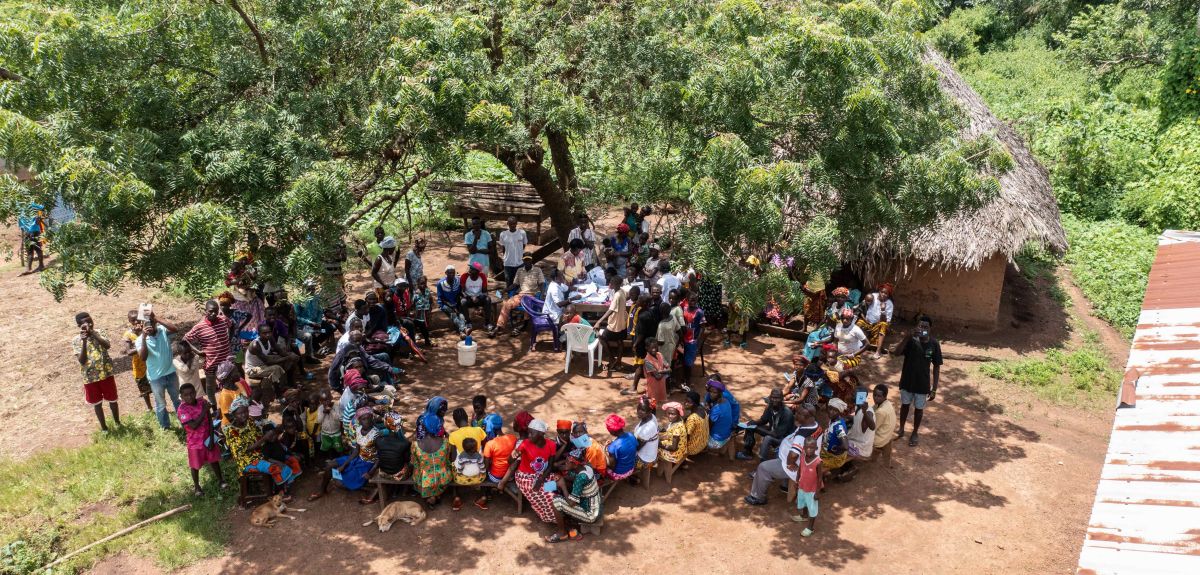
Ground-breaking research unveils cost-effective model to boost COVID-19 immunisation in developing countries
In a ground-breaking development, a cost-effective strategy to enhance COVID-19 vaccination rates among rural populations in developing countries has been unveiled in a recent study published in Nature. Titled "Last-mile delivery increases vaccine uptake in Sierra Leone," the research, conducted by a collaborative team from the International Growth Centre, University of Oxford, Yale University School of Management, and Wageningen University, introduces a simple yet widely applicable intervention to enhance vaccine accessibility.
The study, conducted in Sierra Leone in 2022, comes at a critical time as developing countries grapple with the aftermath of the economic and health shocks induced by COVID-19. With disruptions to routine immunisation campaigns and increased risks of future pandemic outbreaks, the research offers a timely solution to maximise resources, reduce vaccination campaign costs, and promote sustainable and inclusive economic growth.
One of the co-authors of the study, Niccolò Meriggi who is a postdoctoral research fellow (Economics) at Oxford University said: 'Our research shows that access was a binding constraint to the COVID-19 vaccination campaign in remote areas of Sierra Leone. Access, both to the health product and relevant information, is crucial to achieving vaccine equity in developing countries and will likely be relevant to the new malaria vaccine roll-out and other health products and services.'
To address the challenge of low vaccination rates in rural areas, the research team partnered with the Sierra Leone Ministry of Health and Sanitation and international NGO Concern Worldwide. Employing a randomised controlled trial involving over 20,000 Sierra Leoneans in 150 rural towns, health workers took vaccines directly to communities, setting up temporary vaccination sites, providing information, and administering doses.
The intervention, which cost 76% less than comparable models (approximately $80), demonstrated a remarkable success. Within 48-72 hours, vaccination rates in the treatment group increased by 26 percentage points, with a fivefold rise in vaccination counts. By December 2022, Sierra Leone had achieved the World Health Organisation's global target, immunising 70% of its adult population against COVID-19.
This cost-effective model has the potential for replication across developing countries with large rural populations and similar transport, community, and infrastructure setups. The model's efficiency stems from its ability to leverage existing clinic infrastructures, effectively reaching underserved communities.
Looking ahead, the research team, led by principal investigator Niccolò F. Meriggi, plans to expand the successful model to encompass a broader spectrum of health products and services. Securing grants totalling US$ 672,000 from the US-based Social Science Research Council through its Mercury Project and GBP 100,000 from the International Growth Centre, the team aims to explore the feasibility and cost-effectiveness of the model when applied to additional vaccines and maternal and child health interventions.
This initiative, jointly decided between the Ministry of Health and the researchers, will include the COVID-19 vaccine, HPV vaccine for girls aged 10-12, and routine immunisations for children aged 0-6. The grants will facilitate the development of a comprehensive bundle of health interventions, furthering the model's impact on public health in developing nations.
The success of this research offers a blueprint for policymakers, researchers, healthcare providers, and NGOs to prioritise and optimise last-mile vaccine delivery. By reducing the cost of vaccination campaigns, this model contributes to global efforts to achieve widespread vaccine coverage and protect vulnerable populations.
In conclusion, this research marks a pivotal moment in the fight against infectious diseases in developing countries. As the world continues to grapple with the aftermath of the COVID-19 pandemic, the innovative approach presented in this study provides hope and practical solutions for equitable vaccine distribution and improved public health outcomes. The collaboration between academia, policymakers, and on-the-ground practitioners exemplifies the potential for interdisciplinary efforts to drive positive change on a global scale.
 Expert Comment: Ethical and legal challenges of uterus transplants in Mexico
Expert Comment: Ethical and legal challenges of uterus transplants in Mexico
 Oxford Humanities team delivers framework for tackling modern slavery and human trafficking
Oxford Humanities team delivers framework for tackling modern slavery and human trafficking
 Nearly 500,000 children could die from AIDS-related causes by 2030 without stable PEPFAR programmes, Oxford experts estimate
Nearly 500,000 children could die from AIDS-related causes by 2030 without stable PEPFAR programmes, Oxford experts estimate